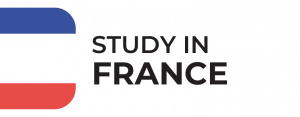Many French universities are constantly looking for international students who are interested in collaborating in numerous industries to promote international relations between countries. From undergraduate studies to master’s and doctoral degrees, France has been the top study destination for students worldwide.
The most prestigious universities are always delivering some of the most popular degrees, and programs that have higher chances of employability. A degree in economics, finance, and business is the top choice for students studying in France. These are considered some of France’s most sophisticated fields of study because of their competitiveness with other European countries.
Here are some of the top universities in France for economics:
Paris School of Economics
The PSE mission is to deliver the information of the course, through an international teaching methodology. Being the first in Europe for economics, the PSE is also ranked in the top five in the world. The Paris School of Economics curriculum includes seminars, workshops, and other group-work-specific activities. To make the courses as clear as possible and let the students pick according to their preferences, the school is built around eight research groups:
- Development.
- Economic and Social History.
- Economic Theory.
- Economics of Human Behavior.
- Globalization, Political Economy, Trade.
- Labour and Public Economics.
- Macroeconomics.
- Regulation, Environment, Market.
Each of these research groups delivers the information needed in different forms, depending on the course. Publications, conferences, and significant networking events are an essential part of such groups.
Pantheon Sorbonne University
The Faculty of Economics invites international students to participate in the exchange program: Erasmus+ and apply for a degree in economics at Pantheon Sorbonne University. Another advantage for international students, who cannot in any way travel to Paris, is the online learning option for the economics department. Numerous programs are available at the faculty of economics, beginning with simple economics licenses to dual licenses, university degrees, Ph.D. courses, and more.
According to the economics faculty at Pantheon Sorbonne, the most important courses are those related to professional pieces of training. Through these courses, the academic staff tries to prepare students for their future careers. Two of the leading training courses are Business Space and Tax Learning. One of the most popular degrees at Pantheon is also the Master Program in Development Economics and Sustainable Development. What makes this program special is its reputation for being one of the oldest programs in economic development in France.
Ecole Polytechnique
The economics department at Ecole Polytechnique is the best option for students interested in the engineering aspect of economics and its implementation in the industry. Candidates can choose from a wide variety of courses, depending on their preferences and career goals. The Faculty of Economics offers basic introductory courses, specialized courses, and research programs in economics.
The areas of specialization in research economics with the most attention are:
- Macroeconomics and Labor Economics.
- Microeconomic Theory and Applications.
- Economics and Sustainable Development.
Getting a degree in economics, especially at doctoral and post-doctoral levels, is the favored route to employment at one of the most important industries such as finance, business, insurance, sustainable development, and environmental organizations/institutions.
PSL Research University
PSL Research University is a public university, and the only programs offered are related to research. More than 900 students attend master’s degrees in the graduate programs of economics, and around 80 Ph.D. candidates enroll annually. The graduate program includes economics, finance, and risk management. Aside from the compulsory courses in the master’s degree, students can choose electives depending on the aspect of economics they are interested in. The subjects that the academic staff treats at the graduate program in economics are:
- Globalization and Development.
- Energy and Raw Materials.
- Financial Economy and Macroeconomics.
- Economic Theory.
- Innovation and Property Rights.
- Health and Aging.
- Public Policy.
- Industrial Organization.
The PSL master’s degrees in economics are numerous, and students can choose from an extensive array of programs listed below.
- Master’s Degree in Economics and Finance.
- Master’s Degree in International Affairs and Development.
- Master’s Degree in Health Economics and Management.
- Master’s Degree in Quantitative Economics.
Paris Institute of Political Studies
The Department of Economics at Sciences Po was created in 2009, and they were focused on creating and developing a new method of teaching based on the latest technologies. With an emphasis on research, the economics department tries to introduce students to a new perspective on economics and share this knowledge worldwide. The permanent faculty at the economics department has numerous specializations in their qualifications, starting from labor economics, cultural economics, social interactions, international trade, macroeconomics, applied econometrics, urban economics, etc.
The graduate programs at the faculty of economics include both master’s and doctoral degrees in economics. Students interested in gaining analytical, technical, and communication skills in the financial industry can enroll at master’s degree programs where these abilities are primary.
Ph.D. candidates and graduate students can receive intensive training at any of the following industries:
- International Organizations.
- Research Institutions.
- Government Agencies.
- Banks.
- Insurance Companies.
Toulouse 1 University Capitole
The Toulouse School of Economics (TSE) is ranked in the top 10 economic schools in the world. More than 2,200 students have been enrolling yearly, some getting a license and a few Ph.D. candidates. The TSE encourages international students to apply to any degree level they prefer to promote diversity within classes and the economy industry. According to the school, the faculty of economics is home to more than 80 nationalities.
TSE’s innovative teaching methods show successful results because of the many academic events. These events include conferences and press releases, debates where economists from different countries gather to share ideas and collaborate on several research projects.
The academic courses at TSE are divided into licenses instead of the usual semester plan. The first and second licenses include preparatory years. Throughout these years, students prepare for a bachelor’s degree. Whereas the L3 with master’s degrees one and two prepares students for the graduate programs.
ESSEC Business School
The Economics Department at ESSEC presents students with two research degree programs to choose from, each of them introducing a few themes, which are:
- Microeconomics and Applied Game Theory.
- Industrial Organization.
- Health Economics.
- Experimental Economics
- Macroeconomics
- Monetary Economy.
- International Economy.
- Institutional Economy.
From the establishment year in 1907, the ESSEC Department of Economics promotes student collaboration and participation in the fundamentals of the economy, which according to the school, is the ideal starting point for the industry to thrive. Moreover, master’s degree candidates must also attend classes in managerial economics to gain skills needed in the business world.
Aix Marseille University
The Economics Faculty at Aix Marseille University welcomes students to join and choose one of the multidisciplinary courses they offer. The Marseille School of Economics focuses on training students with the best skills necessary for securing jobs in the economy and business industry. Degrees offered at the Marseille School of Economics are the Master of Economics, DESU Data Science for practitioners, and the Ph.D. program.
To get a master’s degree in economics at Marseille, applicants must possess a bachelor’s diploma with at least 180 ECTS credits. The Marseille School of Economics offers more than two master’s degree programs entirely taught in English to promote collaboration between international students and the global job market.
AMSE students can participate in student exchange programs, both incoming and students currently enrolled in this school. The exchange programs include numerous study abroad options: one semester abroad or one year with the possibility of a double degree.


